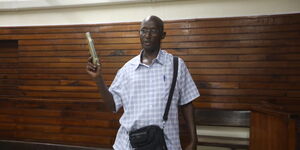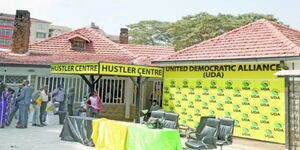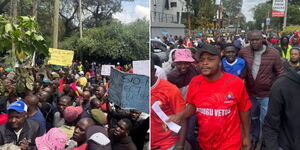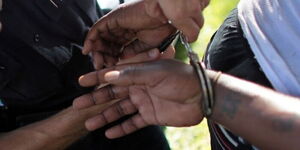Haiti's deepening crisis under the watch of the Kenyan-led Multinational Security Support Mission (MSS) has raised serious concerns about the effectiveness of the intervention.
Reports from the Caribbean nation reveal a grim reality: at least 66 people have been killed or kidnapped in two regions, despite the presence of nearly 400 Kenyan troops.
The situation is worsening as reports emerge that these troops have not been receiving their promised pay, adding another layer of complexity to an already volatile scenario.
The Haitian government, struggling to control gang violence, has acknowledged the severity of the situation. Minister of Justice and Public Security Carlos Hercule, in a recent interview with a local publication, The Haitian Times, admitted that the government’s plans to combat the gangs terrorising Port-au-Prince are still in the planning stages. This admission comes as gang attacks in three regions continue to escalate, further destabilising the country.
Hercule's statements point to a troubling reality: while the government recognises the need for decisive action, their efforts remain largely theoretical. In contrast, the armed gangs have been swift and brutal in their actions.
The terror they impose on communities in southwestern Port-au-Prince, such as Carrefour and Gressier, is palpable, with gangs dictating the terms of daily life for residents.
Since mid-2021, a wave of terror has gripped the southern entrance to the capital. Gangs from areas like Village-de-Dieu, Grand Ravine, and Fontamara have unleashed a reign of extortion, theft, kidnapping, and murder along National Road #2. The gangs have not only expanded their control but have also deepened the despair of the local population.
The toll on these communities has been devastating. A report by the National Network for the Defense of Human Rights (RNDDH) highlights the grim statistics: 66 people dead or missing, four police officers among them, alongside the sexual assault of 46 women and girls. The extent of the violence, which includes elderly victims, points to the brazen brutality of the gangs.
Despite government promises to restore order, the situation on the ground remains dire. The RNDDH report details how gangs have burned homes, looted properties, and even taken over police stations, leaving the authorities scrambling to maintain any semblance of control. The southern part of the capital is effectively under gang rule, with criminals now controlling public markets, businesses, and transportation routes.
The Kenyan forces, sent to assist Haiti's National Police (PNH), have found themselves in a precarious position. Despite their presence, the gangs continue to operate with impunity. The recent revelation that Kenyan troops have not received their allowances only adds to the growing sense of frustration and desperation.
The delay in payments has left many families of the deployed troops in financial distress back in Kenya. This has raised questions about the management of the mission and the commitment of international donors who fund the MSS.
The Haitian mission was meant to stabilise the country, but the continued unrest and the challenges faced by the Kenyan troops suggest otherwise.
Acting Inspector General of Police Gilbert Masengeli sought to reassure the public, stating that the delay in payments has been addressed and that troops will receive their allowances promptly. However, this reassurance comes too late for many who have already been impacted by the delay. The incident highlights the broader issues facing the MSS mission and raises doubts about its long-term viability.
Despite these challenges, Haitian authorities continue to express confidence in their ability to regain control. PNH spokesperson Michel-Ange Louis Jeune, during a press conference, urged patience from the population, even as he acknowledged the enormity of the task at hand. His words, however, seem increasingly hollow as the violence continues unabated.
The National Police Service (NPS) has pushed back on the reports of failure, stating on Monday, that the force had helped Haitian police take back control of "critical infrastructure, including the airport, from gang control" and "opened critical roads that have enabled the return of thousands of Haitians earlier displaced."












